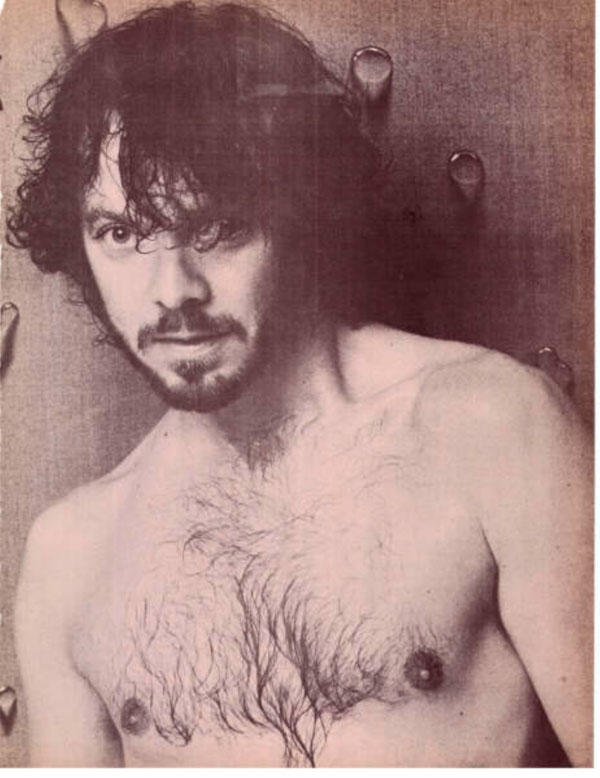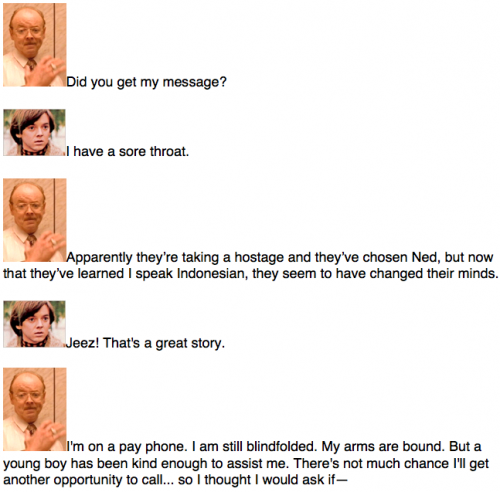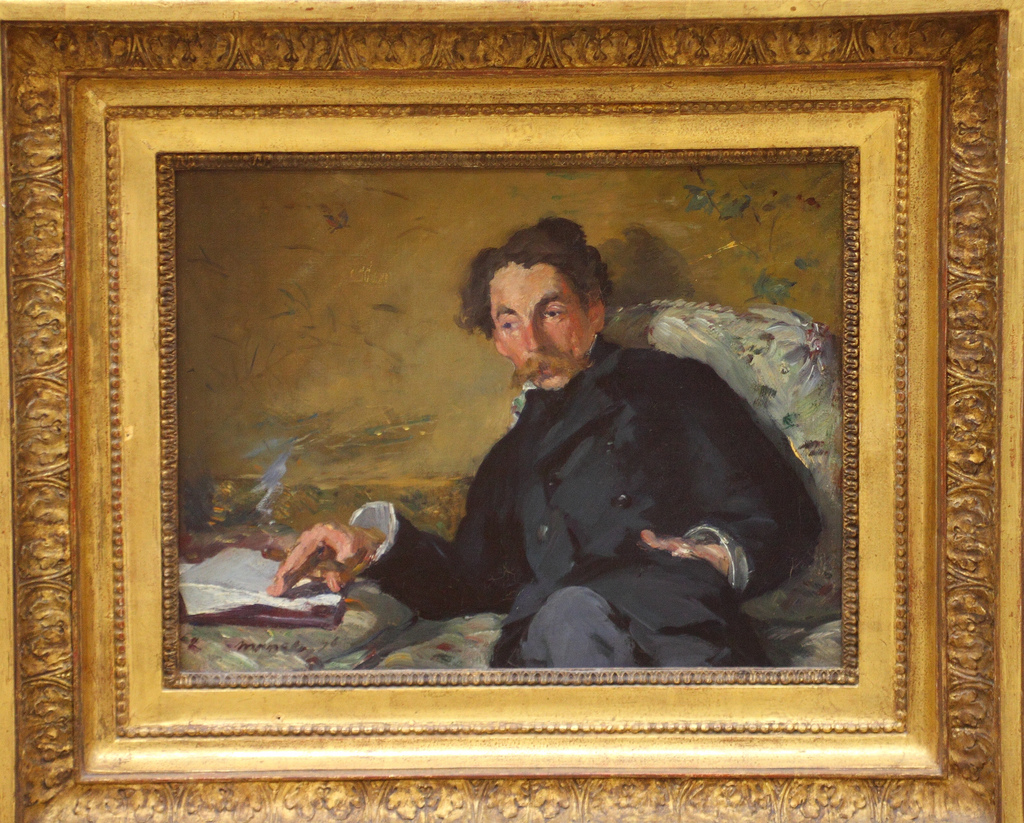i wa nt th e wor ld to be fill ed wi th whi te fl uff y du ck ie s
from Wittgenstein
Dir. Derek Jarman
Yesterday was the birthday of one of cinema’s greatest auteurs: Luis Buñuel (1900-1983)
Read more about him @ Senses of Cinema
Un Chien Andalou (1929)
httpv://www.youtube.com/watch?v=pib9zv1dHcE
L’Age d’Or (1930)
httpv://www.youtube.com/watch?v=s5pTjZ2ld5o
Arts, Process, Edit
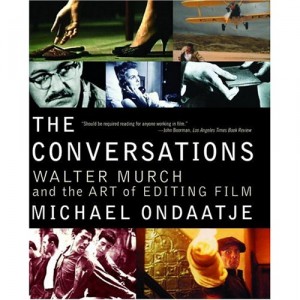 In France*, cheese-making is really two processes. On dairies, milk is collected from cows, goats, or sheep, is cultured, maybe cooked, somehow molded. That is the first process. After that, an affineur takes over. The whole job of an affineur is to age cheese. Keep it at the right temperature, rotate it, maybe dust it off from time to time. When you hear about cheese caves, that’s the affineur part. In the small-producer cheese world, the affineurs are the stars, the ones whose name you would know if you worked in that industry. Pierre Androuet, Herve Mons, Marcel Petite (O the Comte from the cellars of Marcel Petite!). One affineur might get wheels from several different trusted dairies, whose names never make it on the packaging (unlike in the US, where most cheeses seem to be branded by farm/dairy).
In France*, cheese-making is really two processes. On dairies, milk is collected from cows, goats, or sheep, is cultured, maybe cooked, somehow molded. That is the first process. After that, an affineur takes over. The whole job of an affineur is to age cheese. Keep it at the right temperature, rotate it, maybe dust it off from time to time. When you hear about cheese caves, that’s the affineur part. In the small-producer cheese world, the affineurs are the stars, the ones whose name you would know if you worked in that industry. Pierre Androuet, Herve Mons, Marcel Petite (O the Comte from the cellars of Marcel Petite!). One affineur might get wheels from several different trusted dairies, whose names never make it on the packaging (unlike in the US, where most cheeses seem to be branded by farm/dairy).
So it goes with films–the editing is done by someone else, not the director or screenwriter. Walter Murch was the editor and/or sound editor (he’s the only person to win Oscars for both) of Apocalypse Now, The Godfather II, The Conversation, and many many others. His work on The English Patient acquainted him with Michael Ondaatje. The two had a series of conversations/interviews (Ondaatje is asking the questions, primarily) that are collected in a book called The Conversations: Walter Murch and the Art of Editing Film.
The book is a trove. I’ve been meaning to write about it here for over a year (!), but I’m still not all the way through it. Obviously, I’ve put it down a lot, but also I just really want to take my time with it because there is so much to learn and reflect on. I’m fascinated by how these two men, both of whose work I adore, find these nexuses between film editing and book editing. It’s a reminder of how much we as word-people have to learn from people who work in other media. The reason I started with the cheese example is that the big overarching thing the book makes me think about is the relationship between making and aging/editing/tending/revising. Below are a few passages that stood out for me. But really, you should have this book. It was assigned to me in grad school by the great Susan Bell, author of The Artful Edit, which, if a friend hadn’t made off to California with my copy, would get its own post. But with all respect to Bell and Stunk and White and the rest, The Conversations is the best writing manual (not that it’s trying to be) that I’ve ever read. So, here are some bits (O for Ondaatje and M for Murch):
M: It’s a stage in the process I call “editing with eyes half closed.” You can’t open your eyes completely, which is to say, you can’t express your opinion unreservedly. You don’t know enough yet. And you’re only the editor. You have to give everything the benefit of the doubt. On the other hand, you can’t be completely without opinion, otherwise nothing would ever get done. Putting a film together is all about having opinions: this not that, now not later, in or out. But exactly what the balance should be between neutrality and opinion is a very tricky question. The point is, if you squash this down, then you push the whole curve of the film down, whereas it might have righted itself by its own mysterious means. If you try to correct the film while putting it together, you end up chasing your own tail.
If your instrument does not exist yet you build it. Then you fuck around.
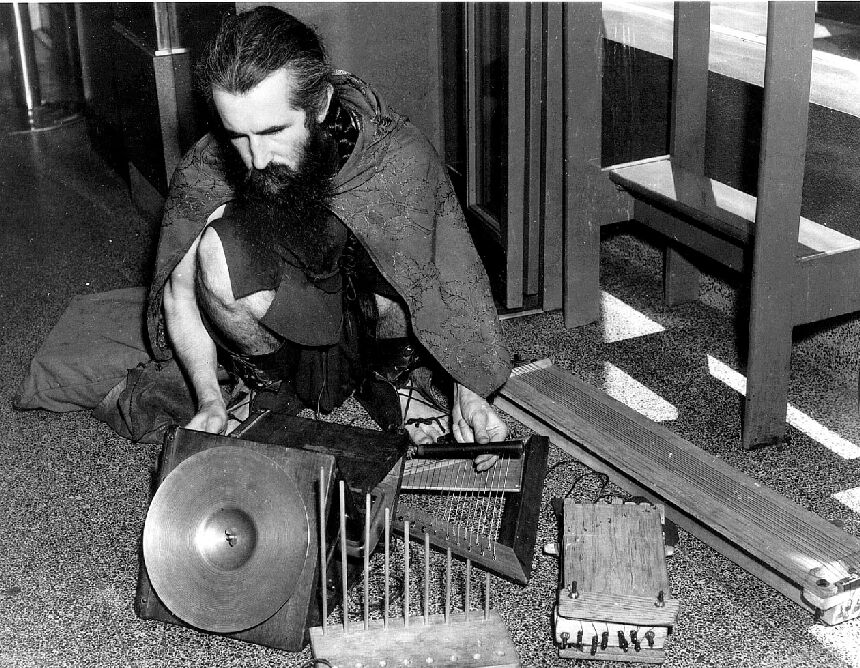
This is Moondog with his Trimba, which he built himself. Moondog is a blind homeless man on the streets of New York City. It is 1953 (I think) and he dresses like a viking because vikings are rad.
“I am essentially not an instrument builder, but a composer. I am a philosophic music man who long ago was seduced into musical carpentry. As a composer and a musical philosopher I make my living by selling records of my music. I am both the manufacturer and the retailer. And I distribute the records very largely by mail.” — Harry Partch, 1958
On Peggy Ahwesh’s The Color of Love (1994)
The use of the tango music seems a clear nod in the direction of Un Chien andalou (Luis Buñuel, 1928). Like its surrealist predecessor, The Color of Love is an assault on the norms of vision. It is explicit; it shows too much.
A few years ago I had the privilege of studying avant-garde/experimental cinema with Ron Green at Ohio State. He introduced me to a lot of amazing and unsettling work. One of the most uncomfortable films I recall experiencing in that period was a voyeuristic film called “Martina’s Playhouse” by Peggy Ahwesh. I won’t go into detail about it, other than to say that it was my one and only experience with Ahwesh’s work until last week when I watched “The Color of Love.” I’ll give you a link to where you can watch this film at the end of this post. Beware, though, it is (arguably) a work of pornography.

“Nothing ever happens.”
This is the first installment of what I might call Litblogging Wis Frvr or something like that. Sort of an anthology-in-progress.
The Book: A Spiritual Instrument
by Stéphane Mallarmé
I am the author of a statement to which there have been varying reactions, including praise and blame, and which I shall make again in the present article. Briefly, it is this: all earthly existence must ultimately be contained in a book. READ MORE >

